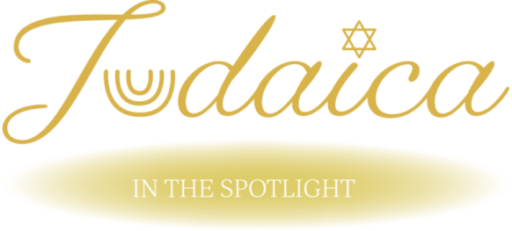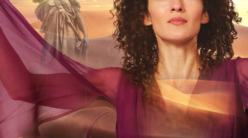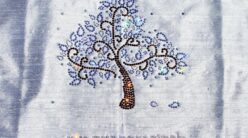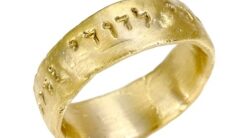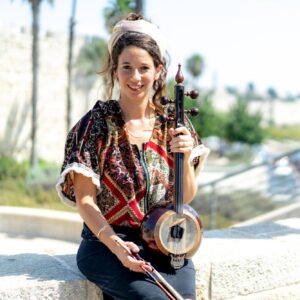
Photo: Courtesy of Yaara Beeri
Tell us a little bit about yourself and your background.
I was always connected to music, I played the cello as a child in the Old City of Jerusalem and I was looking for a sound that would express the longing for the ancient, for the original Jew, I understood that there is kamancheh for the melody of the lost Jew. When I discovered the kamancheh I realised that there was a special connection here and that I had found the sound I had been looking for all my life. The kamancheh is actually the predecessor of the violin, the great grandfather of the violin. Speaking of the violin that the Levis played in the temple it was something that must have been very close to kamancheh and this fact moved me, and I felt it was the bow that Jerusalem is most connected to. Her stones still remember it from the past.
What inspired you to become a musician?
I get my inspiration mainly from Jewish texts, from prayer, and the book of Psalms. The music I deal with is very close to these lyrics and it brings me to it all the time. When I make instrumental music, without lyrics, my inspiration is more abstract and is related to spiritual experiences between me and the Creator of the world. Everyone who hears connects to it from a personal and different place.
What do you enjoy most about your chosen profession?
My greatest pleasure is to see how the music opens the heart of people, eliminates some barrier, and lifts them up. I believe this is the main purpose of music in the world.
Do you believe a classical training is essential to be successful?
I believe training is essential to succeed as a musician. It is the vessel into which the light is poured. If the instrument is not well maintained and your heart is not invested in it, the quality of the music decreases. Especially in the field of music which requires precision, it comes only after considerable effort and investment, an effort of many years.
What is your favourite piece of music and why?
My favourite song to play is the psyche Friend of the Soul, which expresses longing so accurately. It excites me over and over again. Mostly the Moroccan melody.
How was your first performance like?
My first performance was in the courtyard of a museum on a particularly humid summer night. kamancheh has a leather-covered resonator box, and in particularly humid climates the skin contracts and the instrument cannot be played. At that show I put in a lot of effort but hardly made any sound… Since then, I realized I need to be prepared for any scenario and I bought equipment for outdoor performances in cases of humidity.
How much do you practice in an average week?
I practice every day. Even when I teach private lessons it is kind of a training, so it turns out that I do not stop playing.
Which musician would you like to collaborate with next?
I would be happy to collaborate with the Berlin Symphony Orchestra, I often listen to their performances of all sorts of classical works and think that such a combination of a Western orchestra with an oriental instrument with such an interesting story could be a particularly exciting novelty. A real connection between East and West, between old and new.
What advice would you give to an aspiring musician?
My advice is to believe. It’s a concept worth developing not just as a musician. But to a musician it is really fitting — there are so many reasons to give up, to despair, and only believing in yourself, in the Creator of the world, in your art that can make dreams come true.
How can our readers book and find out more about you?
You can follow me on YouTube and subscribe to receive updates on new music coming out once in a while or on Spotify.
I am also active on Instagram and on Facebook.
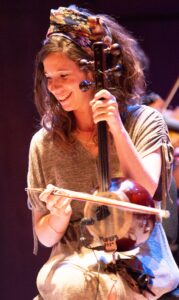
Photo: Courtesy of Yaara Beeri
